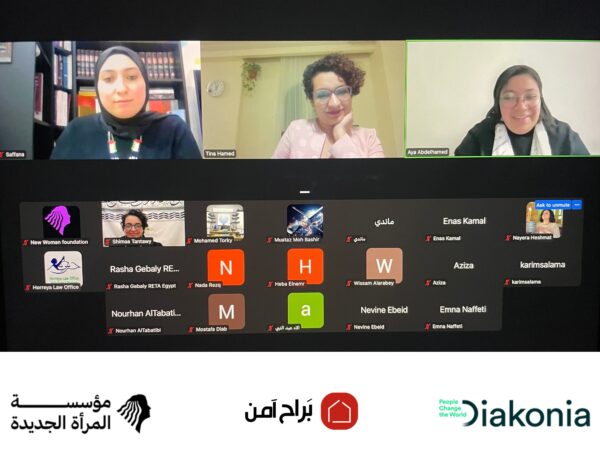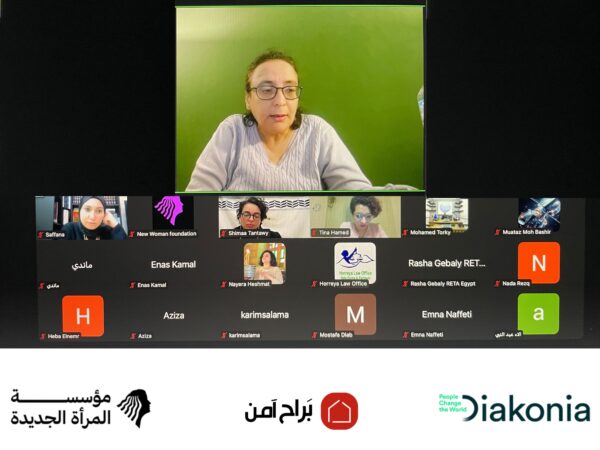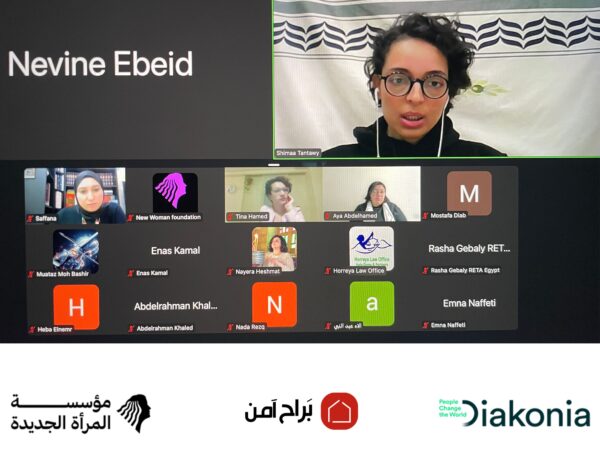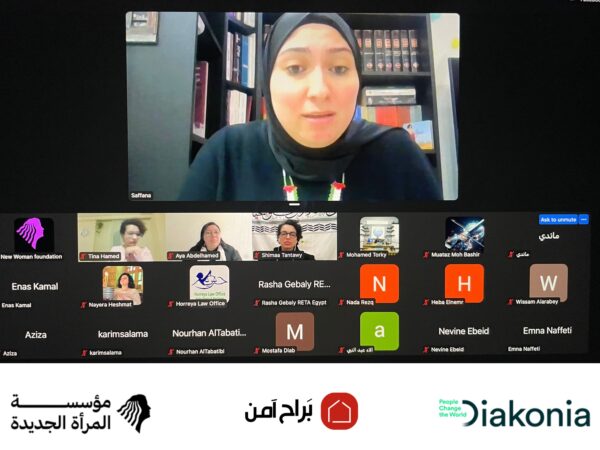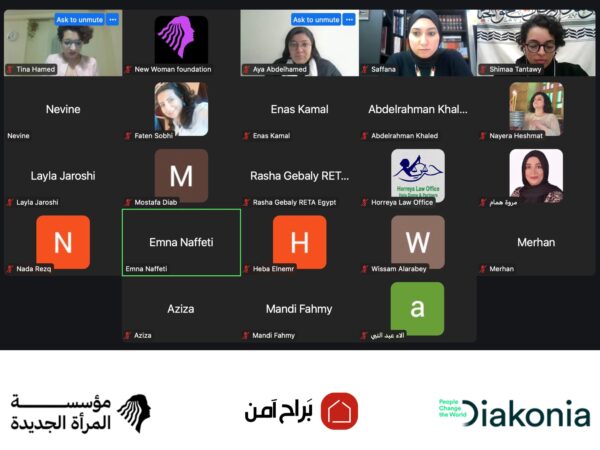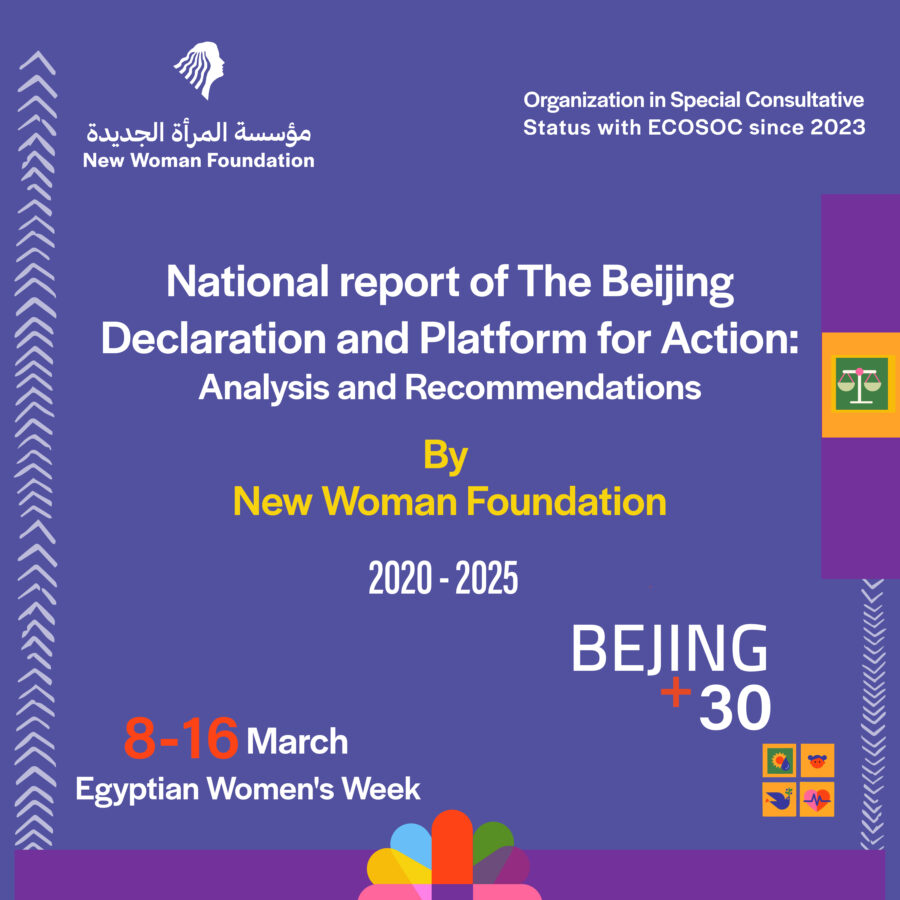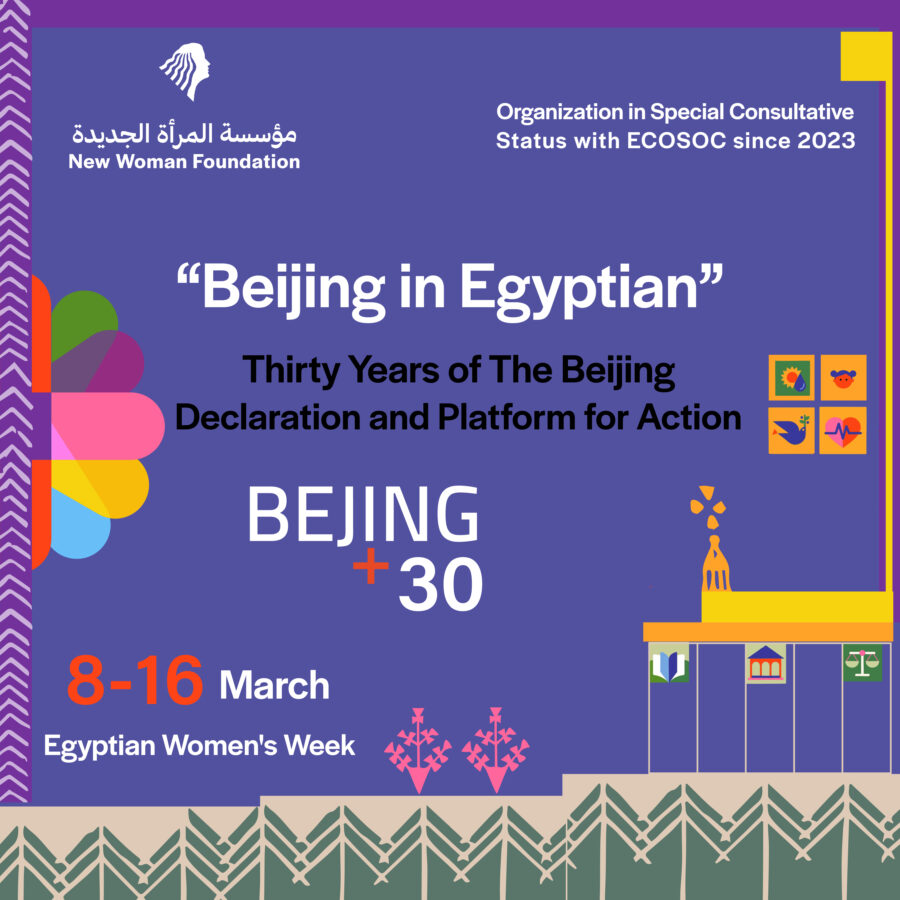- Contact Us
- 0020233382706
- nwrc@nwrcegypt.org
A regional webinar: Do Women in Negative Peace Countries Suffer from Multiple Forms of Violence?”

Case Management Systems and Service Provision for Survivors of Violence
December 3, 2024
“Case Management Systems and Service Delivery for Survivors of Violence” workshop in collaboration with Hawatka from Asyut
December 9, 2024The New Woman Foundation, in collaboration with Baraah Aamen, organized a regional webinar titled, “Do Women in Negative Peace Countries Suffer from Multiple Forms of Violence?” The event brought together activists and human rights defenders from Tunisia, Palestine, and Egypt.
The panel featured Amina El Nafati, a Tunisian feminist activist; Nevine Ebeid, Executive Director of the New Woman Foundation and a researcher in development and gender studies; Safana Abu Safiya, a Palestinian refugee, rights advocate, and trainee lawyer based in Jordan; and Shaimaa Tantawy, an Egyptian feminist researcher and writer. The discussion was moderated by Aya Abdelhamid, Director of the Alwan Observatory Project and a feminist activist, alongside Tina Hamad, a feminist activist.
The webinar explored several key themes, including the concept of compound violence, the impact of regional wars on women in negative peace contexts, the role of cultural, social, and economic factors in intensifying compound violence, and policy recommendations to combat this phenomenon.
Amina El Nafati highlighted how regional conflicts, particularly those surrounding Tunisia, have fostered an environment rife with tension, leading to weapon trafficking and heightened violence against women, particularly within marriages. She noted that economic crises exacerbate these dynamics, pushing women out of the labor market and fueling domestic violence and societal acceptance of violence as a disciplinary tool. These factors, combined with a lack of awareness about protective laws, create layers of compounded violence against women.
Safana Abu Safiya emphasized the interconnected, intersecting forms of violence women face, asserting that in the Middle East, “non-complex violence” does not exist. She explained that the negative peace experienced in the region is a direct consequence of the post-Arab uprisings’ chaos. Safana elaborated on the specific challenges faced by women in Gaza, including physical and sexual violence from the occupation and targeted violence such as femicide and the killing of reproductive capacities. She also addressed the intersection of economic and gender-based violence, framing it as a compounded form of oppression in a state of conflict.
In Jordan, Safana noted an increase in violence against women, reflected in how solidarity movements with Gaza are handled, as well as in the verbal and ideological violence directed at women in demonstrations. This underscores the pervasive tensions within society.
Shaimaa Tantawy discussed the intersecting nature of violence against women in Egypt, pointing out that women often experience multiple layers of violence—whether in public or private spheres—within a single incident. This violence, which may begin with an individual, can escalate into collective acts, often compounded by state institutions during reporting and litigation processes.
She also highlighted the shrinking public space for women and the state’s persistent narrative framing feminist organizations as agents of foreign agendas. Despite this, feminist groups remain committed to addressing the challenges faced by women in conflict-affected areas.
Nevine Ebeid underscored the inherent instability in negative peace countries in the Arab region, even in the absence of active armed conflict. She noted that Egypt, surrounded by conflict-affected countries, also experiences repercussions, with women disproportionately bearing the compounded costs of intersecting identities. Displaced women, in particular, face heightened levels of violence due to prevailing media narratives and social attitudes.
Nevine criticized the penal code for failing to recognize discrimination based on intersecting identities and emphasized the need for gender-sensitive laws that protect marginalized and vulnerable groups. She pointed out the limitations of informal reconciliation mechanisms, which often perpetuate impunity and fail to achieve genuine societal peace, instead undermining the principles of restorative justice. Additionally, Nevine stressed the importance of legislative frameworks that prioritize the protection of women across diverse identities, advocating for a unified violence law as a stable reference for ensuring women’s rights.
The discussion concluded with an emphasis on the importance of ending wars and documenting survivors’ experiences to shape a clear vision for the future, particularly for women navigating the aftermath of conflicts.


